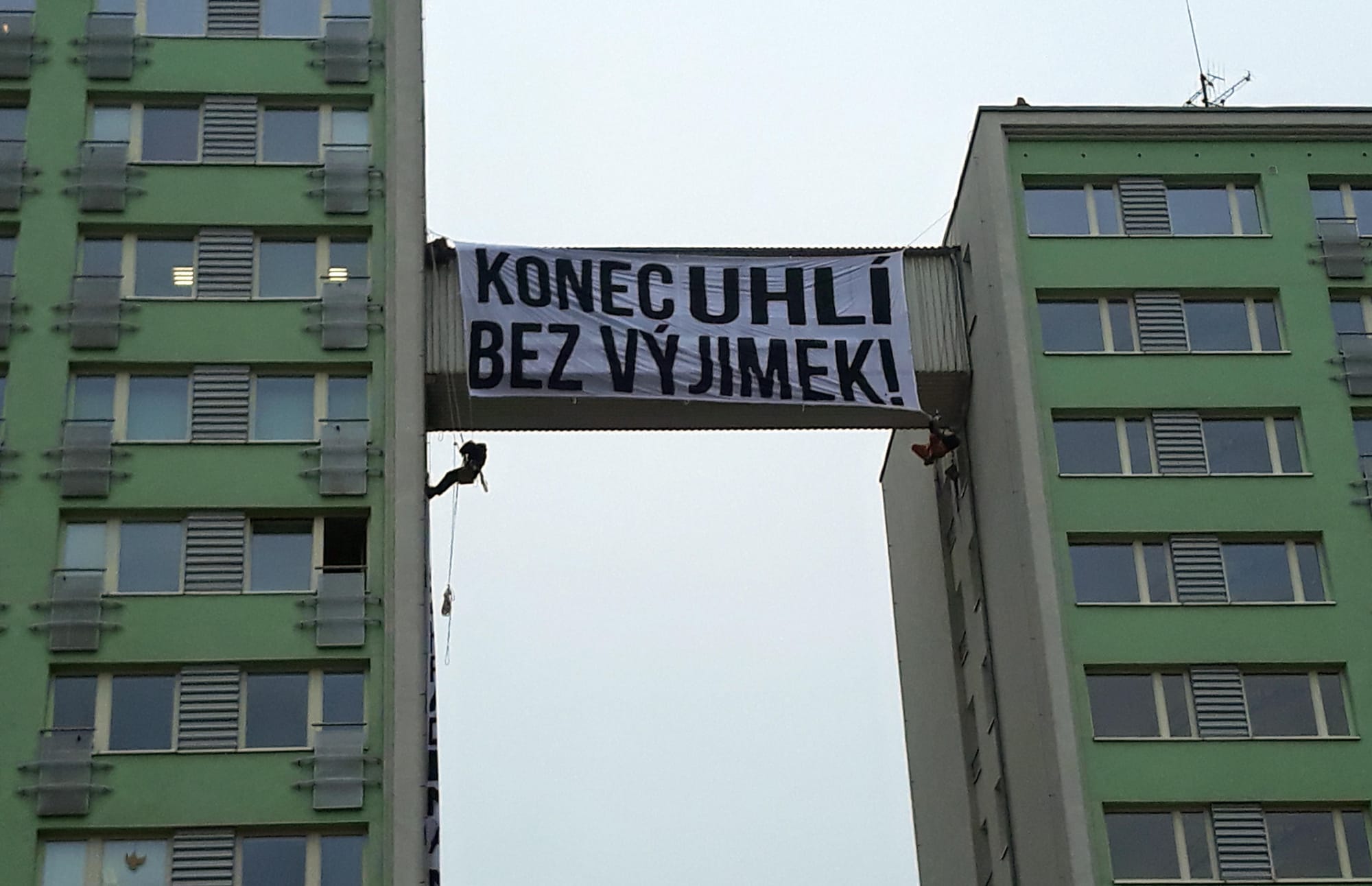Building a united front in Eastern Europe

As the Czech government seeks to balance EU climate targets with fears over energy insecurity following the outbreak of war in Ukraine, deep mining continues in the country’s north – though for how long is another matter. In 2015, activists formed Limity Jsme My (‘We Are the Limits’) to protest against the lifting of mining restrictions – and to seek justice for mining communities.
Since then, the movement has been working to engage working-class people in mining regions. ‘A lot of these regions [have large numbers of people] who are highly in debt, and of course you’re not going to participate in politics if you have so much more on your plate,’ Kristina Hamplová, who organizes with Limity Jsme My, told a draughty hall in Budapest last month.
‘[Relieving] all of these economic issues… can lead to a society where people can actually participate and make decisions, where they can have some trust that if they voice their wish for their region, it’s actually going to be heard. There has to be at least some little cases where participation worked, and there also has to be economic relief so that people actually have time for it.’
She was speaking at LAB-LEFT, a conference organized by Szikra Mozgalum (‘Spark Movement’), a Hungarian movement and political party which has chalked up some impressive gains in one of Europe’s most hostile environments for the left. Formed after a successful grassroots campaigns to unseat Budapest’s hard right mayor the previous year, Szikra campaigned for the restriction of Airbnb in Budapest, and secured its first parliamentary representative in 2022.
At LAB-LEFT, where New Internationalist was the media partner, Szikra was joined by political activists, trade unionists and representatives of grassroots movements – mostly but not exclusively from Eastern Europe. Between housing activists from Scotland’s Living Rent and anti-lithium campaigners in Serbia, what all had in common was their desire to offer an alternative to both the hard right (which continues to scoop up support in the likes of the Czech Republic’s mining communities) and the pro-European neoliberal centre.
And Hungary, where the hard right has leveraged the failures of EU expansion and hyper-capitalism to gain power, was a fitting location. Over a series of seminars and workshops, activists shared the successes and challenges of their organizations – and discussed how to support one another in the fields of housing, municipal politics, party building, workers’ rights and media.
‘Some of us might choose social movements, some of us might choose parliamentary politics,’ Li Andersson, a Member of the European Parliament and the former leader of Finland’s Left Alliance, told the conference. ‘But I think this is a time to push together in the direction on the issues that unite us. Because personally I think I’ve had enough of the left pointing fingers at each other.’
— Conrad Landin (@conradlandin)
📢 Learn more about the Limity Jsme My campaign against coal in the Czech Republic
👉 Follow Szikra Mozgalum to keep up to date on future events like LAB-LEFT
📰 Read about the renewed struggle against lithium mining in Serbia
✊ Join your local tenants' union! (TUF in the US, London Renters Union, Acorn England & Wales, Living Rent in Scotland, RAHU in Australia, Acorn Canada, SLAM in Montreal)
Like what you've read? Support us with a tip.
Are you a freelancer? Pitch us a story.
Looking for more? Listen to our podcast The World Unspun
Subscribe to New Internationalist magazine and get Currents absolutely free!

